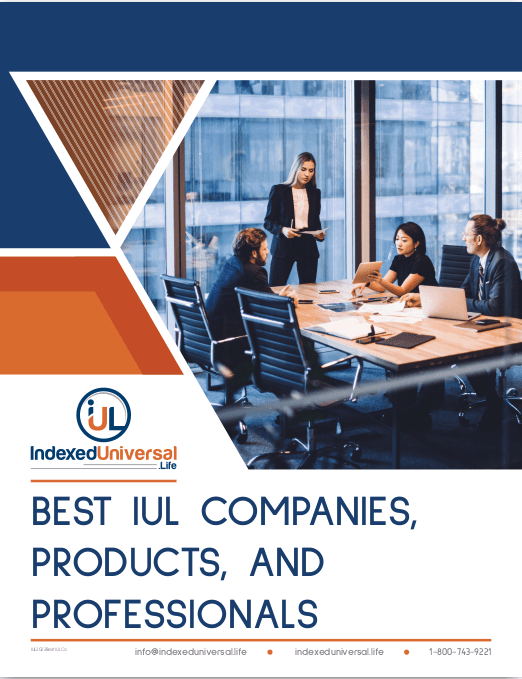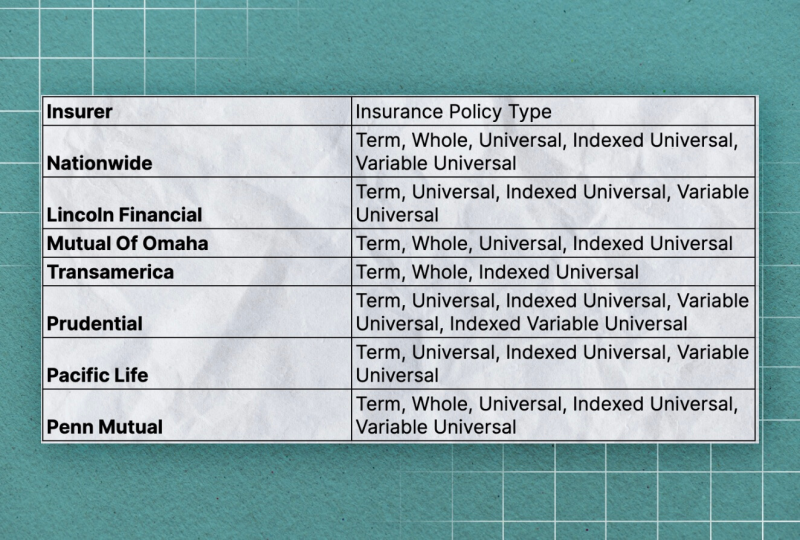All Categories
Featured
Table of Contents
Do they contrast the IUL to something like the Lead Total Stock Market Fund Admiral Shares with no lots, a cost ratio (EMERGENCY ROOM) of 5 basis factors, a turn over proportion of 4.3%, and an outstanding tax-efficient record of distributions? No, they contrast it to some horrible proactively taken care of fund with an 8% tons, a 2% EMERGENCY ROOM, an 80% turnover ratio, and a dreadful record of temporary capital gain circulations.
Mutual funds commonly make yearly taxable circulations to fund proprietors, even when the value of their fund has actually dropped in worth. Mutual funds not only need income reporting (and the resulting annual tax) when the common fund is increasing in worth, however can additionally enforce revenue tax obligations in a year when the fund has actually gone down in value.
That's not how mutual funds function. You can tax-manage the fund, harvesting losses and gains in order to decrease taxed circulations to the investors, yet that isn't in some way going to change the reported return of the fund. Only Bernie Madoff types can do that. IULs avoid myriad tax obligation catches. The possession of common funds might call for the common fund owner to pay projected tax obligations.

IULs are simple to position to make sure that, at the owner's fatality, the recipient is exempt to either earnings or inheritance tax. The very same tax decrease techniques do not function virtually also with common funds. There are many, commonly expensive, tax obligation catches connected with the timed acquiring and marketing of shared fund shares, traps that do not use to indexed life insurance policy.
Possibilities aren't really high that you're going to undergo the AMT because of your common fund circulations if you aren't without them. The rest of this one is half-truths at finest. For instance, while it holds true that there is no income tax due to your successors when they acquire the proceeds of your IUL policy, it is likewise true that there is no earnings tax because of your heirs when they inherit a mutual fund in a taxable account from you.
Financial Foundation Iul
The federal inheritance tax exception restriction is over $10 Million for a pair, and expanding yearly with inflation. It's a non-issue for the substantial bulk of medical professionals, a lot less the rest of America. There are better means to stay clear of inheritance tax issues than purchasing financial investments with reduced returns. Mutual funds might cause income taxation of Social Security advantages.

The development within the IUL is tax-deferred and might be taken as free of tax earnings by means of fundings. The plan proprietor (vs. the mutual fund manager) is in control of his/her reportable income, therefore allowing them to lower and even eliminate the taxation of their Social Security advantages. This one is fantastic.
Here's an additional minimal concern. It holds true if you purchase a common fund for state $10 per share prior to the distribution date, and it distributes a $0.50 distribution, you are then mosting likely to owe tax obligations (most likely 7-10 cents per share) although that you haven't yet had any gains.
In the end, it's truly concerning the after-tax return, not just how much you pay in taxes. You're additionally probably going to have more money after paying those taxes. The record-keeping needs for owning shared funds are significantly much more complicated.
With an IUL, one's documents are kept by the insurance firm, copies of yearly statements are sent by mail to the owner, and circulations (if any type of) are completed and reported at year end. This set is also kind of silly. Naturally you ought to keep your tax records in situation of an audit.
Universal Life Insurance Policy Quotes
All you need to do is push the paper right into your tax folder when it appears in the mail. Rarely a reason to acquire life insurance coverage. It resembles this person has never bought a taxable account or something. Mutual funds are frequently component of a decedent's probated estate.
Additionally, they undergo the delays and costs of probate. The earnings of the IUL policy, on the various other hand, is constantly a non-probate distribution that passes outside of probate straight to one's called beneficiaries, and is therefore exempt to one's posthumous financial institutions, unwanted public disclosure, or comparable delays and costs.
Medicaid disqualification and life time earnings. An IUL can give their owners with a stream of income for their entire life time, regardless of just how long they live.

This is beneficial when arranging one's affairs, and converting possessions to income prior to an assisted living facility confinement. Mutual funds can not be transformed in a comparable fashion, and are usually thought about countable Medicaid possessions. This is one more dumb one supporting that inadequate people (you recognize, the ones that require Medicaid, a government program for the poor, to spend for their retirement home) must use IUL as opposed to shared funds.
Guaranteed Ul Insurance
And life insurance policy looks dreadful when compared relatively versus a pension. Second, individuals that have money to buy IUL above and beyond their retirement accounts are mosting likely to have to be horrible at handling money in order to ever get Medicaid to pay for their assisted living home expenses.
Persistent and terminal illness biker. All policies will certainly permit a proprietor's simple access to cash from their plan, typically waiving any surrender penalties when such people suffer a significant disease, require at-home treatment, or become constrained to a retirement home. Common funds do not supply a similar waiver when contingent deferred sales fees still use to a mutual fund account whose owner requires to sell some shares to fund the prices of such a remain.
Disadvantages Of Indexed Universal Life Insurance
You get to pay even more for that benefit (motorcyclist) with an insurance coverage plan. Indexed global life insurance policy supplies death advantages to the beneficiaries of the IUL proprietors, and neither the owner nor the recipient can ever lose cash due to a down market.
I certainly don't require one after I get to financial self-reliance. Do I want one? On average, a buyer of life insurance policy pays for the real price of the life insurance coverage benefit, plus the expenses of the plan, plus the earnings of the insurance coverage firm.
Guaranteed Death Benefit Universal Life
I'm not completely sure why Mr. Morais tossed in the whole "you can not lose money" again below as it was covered quite well in # 1. He simply intended to duplicate the finest marketing point for these points I suppose. Once again, you don't lose small dollars, however you can lose real dollars, as well as face severe possibility expense due to reduced returns.

An indexed universal life insurance policy plan owner may exchange their policy for an entirely different policy without triggering revenue taxes. A mutual fund owner can stagnate funds from one mutual fund business to an additional without selling his shares at the previous (hence causing a taxed occasion), and buying new shares at the last, frequently based on sales costs at both.
While it is real that you can exchange one insurance plan for another, the factor that people do this is that the very first one is such a horrible plan that also after purchasing a new one and going via the very early, adverse return years, you'll still come out in advance. If they were offered the appropriate policy the first time, they shouldn't have any type of wish to ever before exchange it and go through the early, negative return years once again.
Latest Posts
Best Variable Life Insurance
Term Life Vs Universal Life Insurance
Universal Life Insurance With Living Benefits